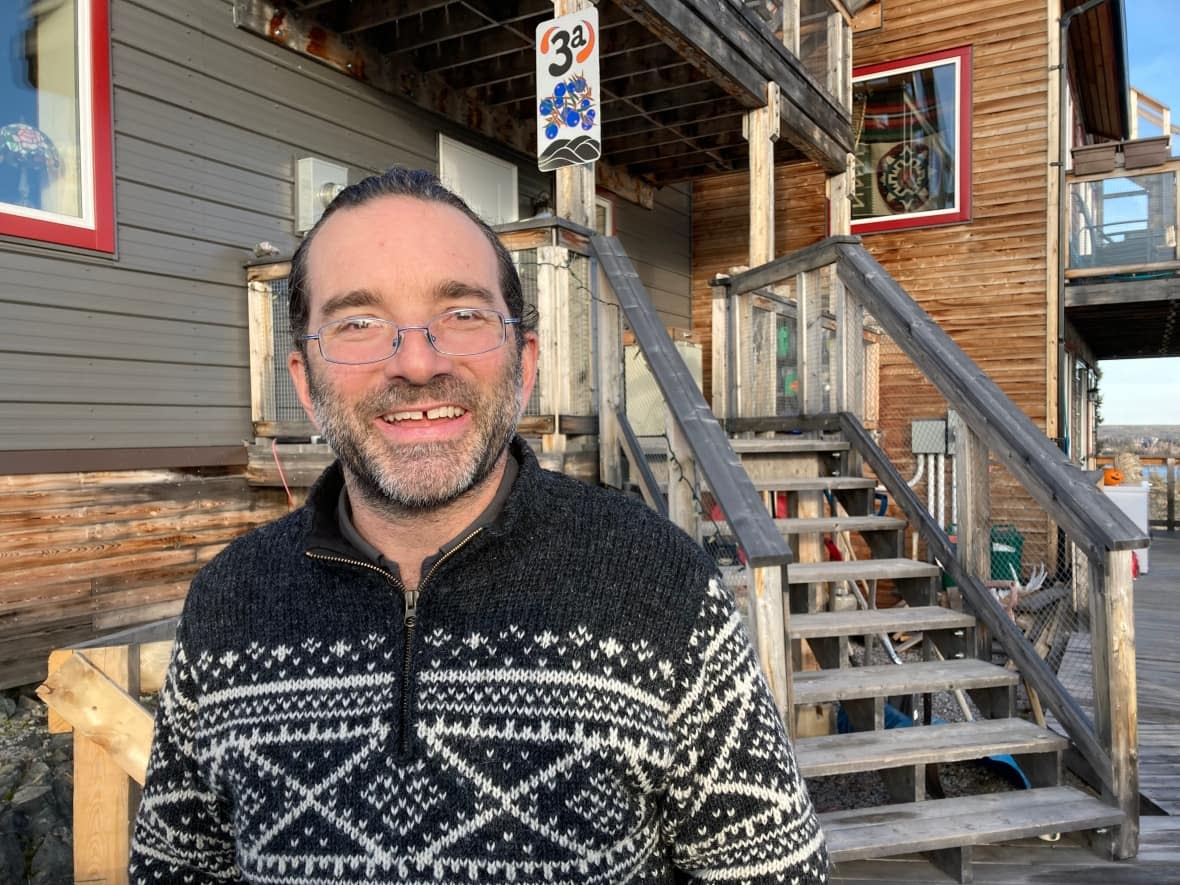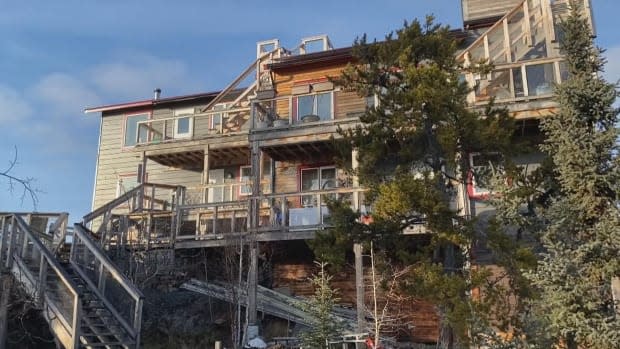Anxious about your impact? This N.W.T. man says he's been carbon neutral for 15 years

Our planet is changing. So is our journalism. This story is part of a CBC News initiative entitled Our Changing Planet to show and explain the effects of climate change and what is being done about it.
Andrew Robinson, a stay-at-home dad and self-described "energy nerd" in the N.W.T., says he's been carbon neutral since 2007 — and it isn't as hard as people think.
He started building an energy-efficient duplex in Yellowknife's Niven neighbourhood seven years ago that helped his family reduce their carbon footprint significantly. But he also pointed to a solution that's much easier than constructing a new house.
"You can be carbon neutral just by buying carbon offsets," he said.
Carbon offsetting is a way to "cancel out" carbon emissions that have been spewed into the atmosphere. They're a tool in the fight against climate change which have drawn some debate, and they work by letting emitters (including individuals, governments or businesses) fund and take credit for greenhouse gas reductions from a different project or activity elsewhere.
"In some parts of the world, there's a lot more renewable resources and a lot less money," said Robinson. Because of that, he said, a $20 carbon offset can go a long way in a community that can't afford to install its own solar panels.

Robinson co-authored a study, released in 2020 by Alternatives North, that said carbon offsets would be the "most immediate and affordable" way for the territory to reduce its greenhouse gas emissions.
But there are different schools of thought about whether offsets actually reduce emissions, and some experts say they can do more harm than good, while others say they can play a significant role in reducing emissions if properly managed.
Dr. Courtney Howard, an emergency room physician at Stanton Territorial Hospital who ran in the Green Party's leadership race last year, told CBC News from The Conference of Parties (COP) in Scotland that part of the value of carbon offsets is that they make people aware of their own own carbon footprints.
"It makes you go through the process of counting [what your carbon footprint is]. And we know that anything that gets measured, gets managed, and that can be a really important first step to decreasing your carbon footprint."
Howard said people also tend to misjudge what their biggest carbon creators are.
"We overweight recycling, and we tend to underweight things like heating and electricity," she said.
"Most people at this COP will say, 'reduce as much as you can and then ... use offsets to make up the rest. So it's the bit to get you that extra little bit of the way to your goal. But it definitely isn't licence for us to just keep living the way we're living."
From 16 tonnes of carbon to 0.7
The most it's ever cost Robinson to offset a year's worth of carbon, he said, was $600.
"Back in the beginning, I was up around 16 tonnes of emissions because I was living in a house that wasn't very efficient, burning heating oil, and travelling. In that case, I flew to South Africa, which really pushed it up."
Robinson said his family was able to whittle that down to 0.7 tonnes (or 700 kilograms) of carbon emissions last year. Those emissions came exclusively from their car, he said, because they stopped flying as a result of the pandemic but also because they made some big changes over the years like building their new energy-efficient home, installing a wood stove, and investing in electric bikes.

The only sources of carbon, now, are the family's vehicle and travel.
"We have a motor canoe, with a three horsepower motor on the back, and we went out on the lake for a holiday this year and that used like 15 litres of fuel. It's like nothing," he said.
Robinson warned that it's important to find carbon offsets that are well-managed.
Last year, he said his family offset 1 tonne of emissions with The Gold Standard, and invested in a biomass energy project in Russia.
Heating 1,300 square feet with a wood stove
The home Robinson lives in with his family plays a significant role in their carbon-neutrality.
They bought the land with a friend, who shared their interest in building a "super" energy-efficient duplex that doesn't rely on fossil fuels.
"Apart from the occasional barbecue, we don't have any fossil fuels on site here," he said.

A house uses energy for two things — electricity and heat, explained Robinson.
"We're lucky in Yellowknife that we get almost all our electricity from hydropower, which means it's not fossil fuels," he said. His 1,300-square-foot unit within the duplex is heated with a wood stove, while his neighbour's is heated with a pellet stove.
The outer construction of the house has two walls, he said, with a layer of insulation in between.
"Insulation is amazing stuff. We didn't really believe at first, that we could heat our house with just a wood stove," he said, noting that he originally thought he'd need a pellet boiler and in-floor heating to make it livable.

"But once you made the house super insulated, super airtight, it works really well."
Individual responsibility vs. confronting industry
Although Robinson has taken responsibility for his own carbon footprint, he said it's "not entirely fair" to put the onus on all individuals to do the same.
"You're not in charge of everything that's in your life," he said.
A recent study, noted Howard, shed light on how the fossil fuel industry has intentionally framed its narratives and advertising around personal responsibility.
"They know that if they keep us looking at ourselves and self-flagellating constantly and silencing ourselves and feeling as though we're not able to speak up are not allowed to speak up in favour of systems change ... that we'll leave them alone."
Personal responsibility does play an important role, she said.
"But we need to be really, really clear that there's no way we can get to the level of carbon reduction that we need without confronting industry, without completely changing our systems and our funding models."


